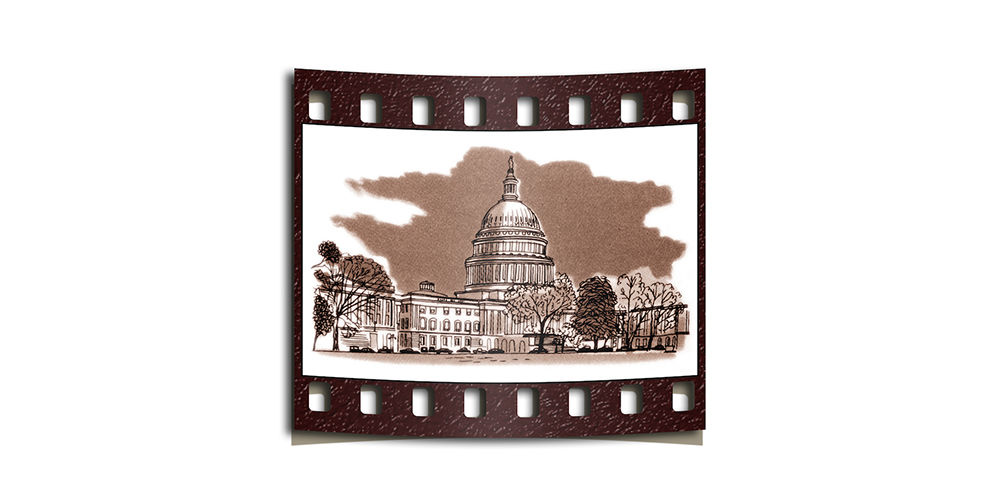With all the trouble in the world and with the state of American presidential politics in the condition it is, I think it is high time to take a breath and talk about… presidential politics.
The movie “The Senator was Indiscreet” does not examine deep theological themes or heavy geo-political concepts and, with the way of the world right now, I think we all deserve a little break. The film’s pedigree is pure Hollywood golden age royalty, written by a great theatrical writer Charles MacArthur and directed by another great, George Kaufman. Its star was one of the longest-lasting Hollywood leading men in the history of the industry, William Powell. I don’t expect many people to have ever heard of this film, but some, hopefully many, know William Powell’s work. He was the epitome of the suave, urban gentleman whether he was solving crimes in a string of “Thin Man” movies with Myrna Loy or playing playboys and gadflies in romantic comedies. His turn as the unflappable and wise Doc in the film version of “Mr. Roberts” is a performance that never grows old.
In 1947, Powell’s leading-man looks may have started to wane, but his comedic timing and ability to dominate a screen held strong. “The Senator was Indiscreet” is an endearing farce, hitting a lot closer to home than anybody living in the 21st century and watching 24-hour news cycles is probably comfortable admitting. It is also proof beyond a reasonable doubt that art can imitate life.
Powell plays dim-witted Senator Melvin G. Ashton, a simpleton of the first order who, from all external appearances, seems safely tucked under the thumb of the operators of a corrupt political machine. But when he gets it in his head that he should run for president and hires a PR guy to promote the notion, things soon get out of hand. To the shock and chagrin of the political bosses, Powell’s Senator Ashton starts building momentum and they try to stop him. Sound familiar? Because the senator is so beautifully clueless, the bosses think it’s a no brainer. Only, there’s this little problem of a diary Powell’s character had been keeping for thirty years chronicling every dirty trick and illegal activity the party bosses have engaged in. And when the diary goes missing, the movie turns into a classic screwball comedy with competing sides vying for the missing diary, while all the time, Senator Ashton continues to rise in the polls.
There’s a lot to like about this movie if you like movies and politics. The relevance of a movie made in 1947 in today’s climate is jarring and makes me think in terms of “when will we ever learn?” Another reason I like this film is the way women are portrayed. It’s ironic that the 1940s are certainly not considered as evolved or modern when it comes to women’s rights, but women play important roles in the film.
Being the father of a daughter I appreciate that. For example, the crusading reporter Poppy, who is bent on finding the diary, is the equal to her fiancée Lew even though he is equally intent, the good PR guy that he is, to prop up the public image of Senator Ashton. Poppy wants to publish the diary, expose the corruption and prevent a buffoon like Senator Ashton from reaching the White House. I won’t spoil the ending. Like a lot of women’s roles in the not-so enlightened 1940s, Poppy is more independent and liberated than many women we see in movies today.
This is certainly a lost jewel of a movie. For William Powell’s performance alone, it’s worth the effort. And speaking of everything old is new again, the dedication attached by the writer to this movie kind of says it all.
rn
To every politician who has ever jeopardized a baby's health with unsanitary kisses, who has ever delivered a three-hour Fourth of July oration about himself and George Washington, who has ever promised peace, prosperity and triple movie features in exchange for a vote, this picture is not too humbly dedicated.
rn

